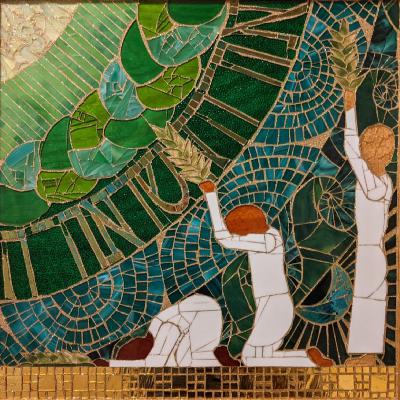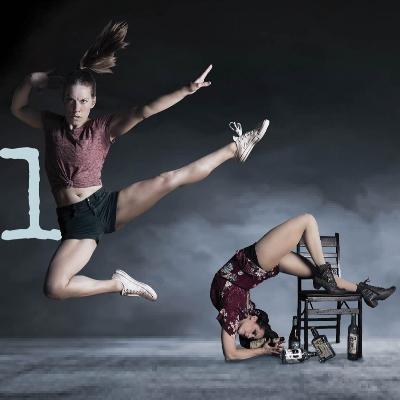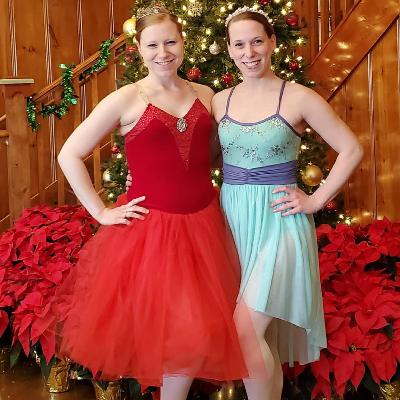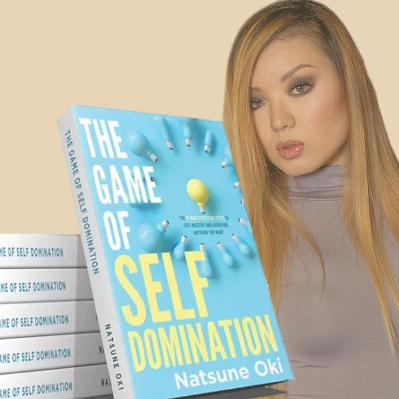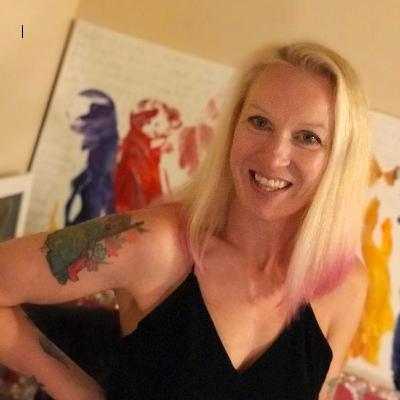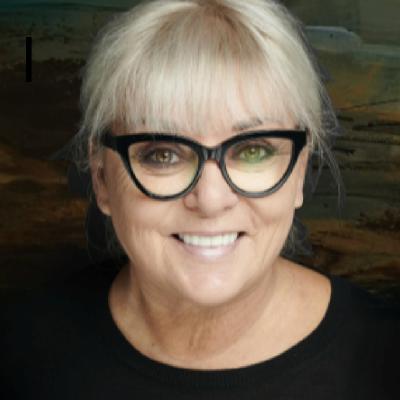Episode 077 - ”What is the Most Important Role of an Artist?” - Part 1
Description
In today's episode, I have compiled some of our more recent guests' answers to the question, "What is the most important role of an artist?" This delightful compilation brings a plethora of unique, honest, and inspiring answers to that question, and I'm excited to share part one of this series with you today. Enjoy!
Enroll in Lindsey's dance and wellness courses: www.elevateart.thinkific.com
Support Artfully Told: www.paypal.me/elevateart
Artfully Told links: www.facebook.com/artfullytold | www.artfullytold.podbean.com | elevateartskc@gmail.com
Get a free audiobook through Audible! http://www.audibletrial.com/ArtfullyTold
Schedule your own interview as a featured guest with Artfully Told! https://calendly.com/artfullytold/podcast-interview
Episode 77 - "What's the Most Important Role of an Artist?" - Part 1
[00:00:00 ] Lindsey Dinneen: Hello and welcome to Artfully Told, where we share true stories about meaningful encounters with art.
[00:00:06 ] Krista: "I think artists help people have different perspectives on every aspect of life."
[00:00:12 ] Roman: "All I can do is put my heart in to the world."
[00:00:15 ] Elizabeth: "It doesn't have to be perfect the first time. It doesn't have to be perfect ever, really. I mean, as long as you, you're enjoying doing it and you're trying your best, that can be good enough."
[00:00:23 ] Elna: "Art is something that you can experience with your senses and that you just experience as so beautiful."
[00:00:31 ] Lindsey Dinneen: Hello, and welcome back to another episode of Artfully Told. I'm your host Lindsey, and I am delighted to be bringing you another special episode today. We are going to explore all of the different answers to the question, "what's the most important role of an artist?" Over the last year and a half I have gotten to ask that question of so many artists and guests that have been on my show. And I absolutely love hearing people's perspective on this question. So I'm excited to bring it all together for you in this special episode that I hope you thoroughly enjoy.
[00:01:11 ] Ashley Taylor: I wrote about this one time and I'm going to try to summarize what I said. I believe that the role of an artist is to observe. Observe and express. So observation is a very important part of-- if you're the landscape painter, you have to spend a lot of time looking at the landscape that you're going to paint. And you have to observe the details in ways that you may not ordinarily if you're just looking at this picture, but trying to put it down on paper, you have to consider all of this at great detail. And so a metaphor that I love is -- as an artist drawing or painting or doing something visual like this, you have to always ask, "Where are the shadows in what I'm drawing, where the shadow is falling?" And that tells you: "Where is the light and where's the light coming from to cast these shadows?" and so when I expand that into sort of a metaphor for what the artist is doing, I think, I think that's what we are supposed to be doing personally is like, okay, I'm looking at life or I'm looking at the situation. Where are the shadows? Where are the dark things, the bad things?
[00:02:24 ] Right? But then if, if these are the shadows, okay, there's gotta be light coming from somewhere because shadows don't exist without light. I mean, if there was no light, you'd be looking at a blank black piece of paper. And we all know life is more than that . Anyway, so all that to say, I think the role of the artist is to say, "Where's the darkness, where are the shadows, where's the light? How do I represent both fairly?" And then let you draw your own conclusions. Like I can infuse my conclusions into what I make. But in the end, art is up for interpretation. It's usually subjective. And so, you may look at my story. And say, " well, the darkness is way more important than the light there. The shadows, you know, outweigh the light in this." But somebody else might say, "wow, look at the way the sun is shining." So that's what I would say to be a careful observer of the world and to draw out where the good things are as well as the bad.
[00:03:30 ] Bryant Williams: Artists needs to be truly authentic. You know, in this day and age, you know, whether people like that or not, it's--art is subjective--and be authentically you.
[00:03:40 ] Krista Eyler: I think artists help people in the world, see things in a different way. I think I think artists help people have different perspectives on every aspect of life. I mean, what would we do without, you know, the great playwrights who have shown us corners of the world that I will never see or make music from different countries that I, I didn't grow up in that tradition, so I would never have heard it. I mean, an artist's job is to enrich life for others. I don't, I mean, I inherently, I think the creation of art is kind of selfish because we have to, it comes from our brain, comes from our hand.
[00:04:25 ] We're very happy or sad with it. But I really think art is, for me--it's so cliche--but art is for everyone, and artists need to create for people out in the world who are non-artists, so they can see a different perspective of the world--they can hear something, see something, do something different that will be better and change, possibly even change your mind and then change how you operate in your daily life. I mean, that is a profoundly important thing that art can do is change how people think. And I mean, that's powerful. It's very powerful.
[00:05:02 ] Rick Wright: You know, I think there's some responsibilities that the artists have. I think honesty and, personal, personal perspectives. I think there's things that happen in this world that we need artists, creatives, performers to react to, to communicate about, guide, challenge. I think that's one of the more important jobs right now. There are brilliant, passionate artists out there that are that are making a difference. And I think that's super important. And I'll be honest that I don't necessarily think my own work is challenging any norms in society, per se, but I think those that are out there doing that really have my, my respect and I, I value that we all have a duty just to be honest with ourselves and you don't have to put up a front, you know, just be, be the person you are, do the work that you want to do and put it out there. You can choose how much of yourself to put out there. I mean maybe you're a little bit conservative by nature and that's fine, but you know, just those, those little, little pieces of truth are, are valuable.
[00:06:15 ] Roman Mykyta: I think the most important role of an artist is to be truthful about reality and how they see it. And along with that, to be honest, that opens up a lot of different doors, whether being truthful and honest is being very joyful and expressing the beauty in life, or it can be expressing the pain that we all feel, and then the way you treat that, whether it's with humor, with seriousness or drama, I feel like there's a place for all of those things. I'm sensitive personally about not overloading audience with what's negative.
[00:06:52 ] It's really important to be honest, to be raw and to express pain, honestly, but in a way, I feel like we are so inundated by bad news, and just other dramas and political things that I almost feel like if we're so out of balance that way, I would encourage artists to-- it gives the audience a bread and life from the other side. 'Cause in my personal life, I feel like in the people who I know we need more of a goodness color and light than we need more anger, but ultimately it's important to just be honest and truthful.
[00:07:30 ] Danielle Guy: Once again, going into the true thing, just tell the truth. I hear this all the time with actors where they're, where they say, "Oh, acting is my escape." And that's, those typically are the actors that are kind of hard to work with because it's not an escape. A lot of these characters are created out of some sense of reality. And I feel like we do them a dishonor by taking someone's potential life or potential situation and putting it on as a mask to escape the reality in our own. So it's just, you know, doing honor to the text doing honor to what has come before us.
[00:08:09 ] Erin Paige: To be authentic. I think it's vital as an artist to be as true to yourself as you possibly can. To be as authentic--oh, I just got covered in goosebumps-- that's, that's how I know I'm speaking from my authentic self, I always tell people. Yeah, just to be as authentic as possible, and that serves others. If you're not showing up in your most soulful or authentic self, you are denying those of us that are looking at your art, watching your art, listening to your art--you're denying us that divine gift. So please, please, please. think it's vital for artists to be responsible in their artwork by being as authentic as possible. And that's, that's what I have to say about that.
[00:09:04 ] Elizabeth Cooper: I would say being true to yourself and your passion. A lot of art is--it's interpretation of what, what you see around you and what inspires you. So you know, I would say that it's really being yourself and letting yourself and what you see shine through.
[00:09:27 ] Jeremiah Kauffman: I can't speak for all artists, but for a lot of us, the role of an artist is to, to move people and to h




